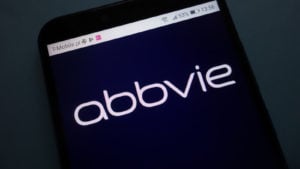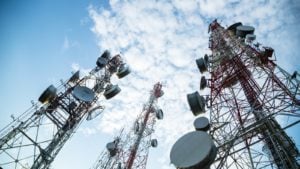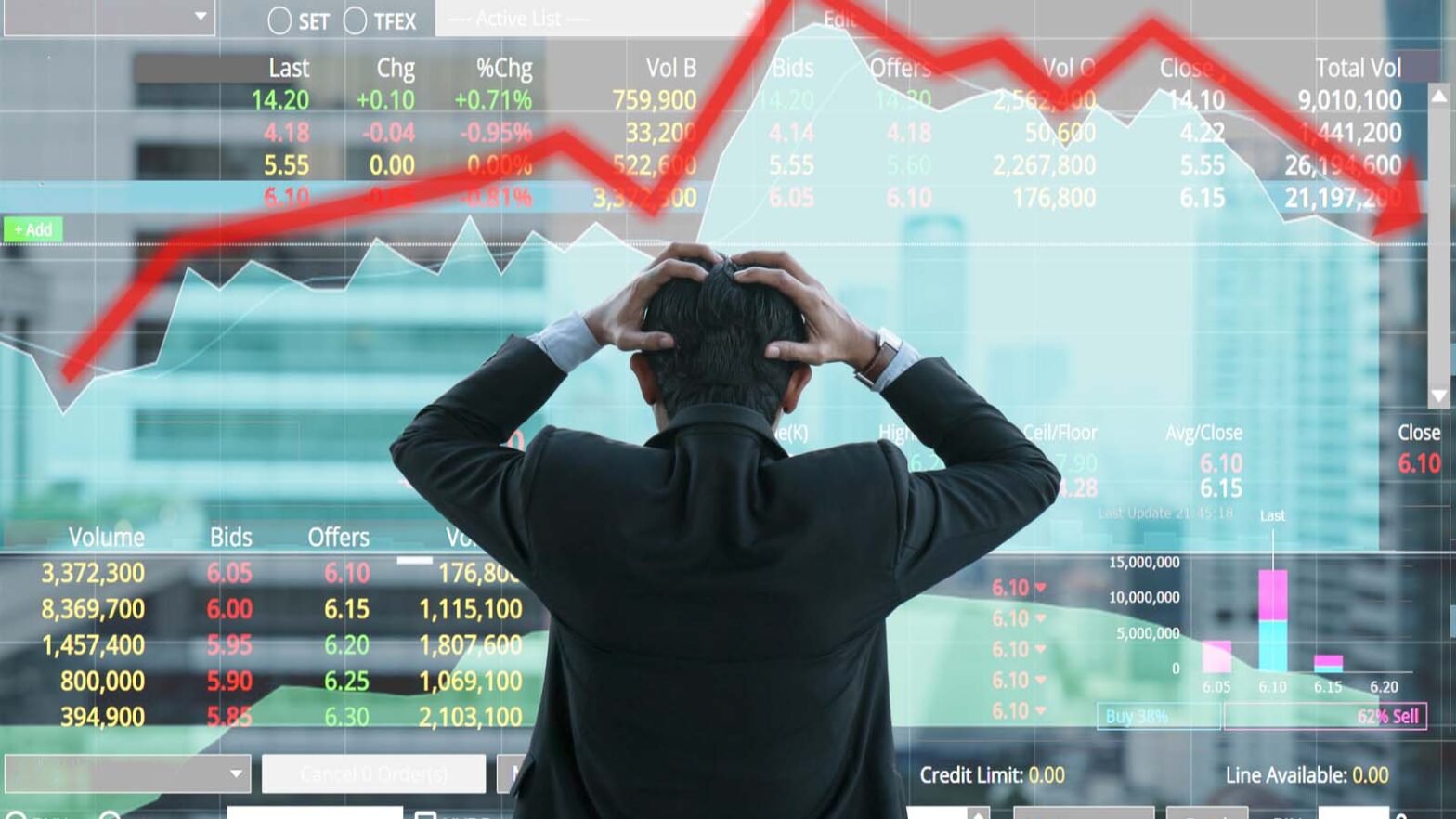Income investors will appreciate these three stalwarts for an economy that lands harder than anticipated.
One of the best reasons to invest in dividend stocks is how well they hold up when the stock market falls. Whether it’s a correction, a bear market, a recession, a depression or a full-on market crash, dividend-paying stocks outperform non-payers by a wide margin.
The asset managers at Hartford Funds looked at the performance of the S&P 500 going all the way back to 1930. They found there was never a time where dividend stocks on the benchmark index had a losing decade.
Further, if you invested $10,000 in the index in 1960 and reinvested the dividends through 2022, you would turn that grubstake into more than $4 million. In contrast, the S&P 500 without dividends returned just $641,000. Dividend stocks also outperformed their counterparts with lower risk and volatility. Being paid to own stocks and hold them for the long haul turns out to be a very rewarding and lucrative strategy.
While many strategists and analysts today hope for a soft landing for the economy, there is still a good chance everything goes south. That means buying dividend stocks for a market crash is a smart way to invest. Even if we come out okay, you protected your downside with plenty of upside potential added in. The following three dividend stocks will serve you well in good times and bad with a steady stream of income.
Dividend Stocks to Survive a Market Crash: AbbVie (ABBV)

Source: Piotr Swat / Shutterstock.com
The market is beginning to realize it wasn’t end days for pharmaceutical stock AbbVie (NYSE:ABBV) when its top-selling arthritis drug Humira lost patent protection. The treatment was a massive success for AbbVie by generating more than $20 billion in annual sales, or more than a third of the pharma’s total revenue. The doomsayers, though, ignored the rest of the portfolio.
Plaque psoriasis treatment Skyrizi turned in more than $5 billion in sales in 2022 and has over $5.3 billion in the first nine months of 2023. Rinvoq is a Crohn’s disease treatment that has $2.7 billion in sales so far this year, up 55% from last year. AbbVie has seven other drugs that have already generated more than $1 billion in sales as well. Humira itself is still churning out huge sales of some $11 billion.
Healthcare is something people can’t forego even in a downturn. With a rich portfolio behind it and a robust pipeline of drugs in development, AbbVie is a solid dividend stock to own in a market crash. It is credited with 52 years of consecutive dividend increases. Over the past five years, AbbVie has grown the payout almost 8% annually.
ABBV stock is up 26% from its 52-week low but there is plenty of capital appreciation and income streams waiting to be realized.
American States Water (AWR)

Source: Sambulov Yevgeniy/ShutterStock.com
I like to point out that utilities were the original widow-and-orphan stocks because of the regularity and safety of their dividend payments. They might have had American States Water (NYSE:AWR) in mind when they devised it. The water utility provides clean water and electricity to southern California. It also has 50-year privatization contracts to provide 12 military bases in nine states with water and wastewater services.
Founded in 1929, American States Water began paying a dividend two years later. It has raised the dividend every year since 1954, making it a Dividend King. Yet AWR stock is lagging behind the broader market. Shares are down 16% over the past year and off 22% from their 52-week high.
The reason is the high-interest rate environment we’re in. Clean water and wastewater treatment are always essential. However, the Federal Reserve’s rapid increase in rates puts utilities like American States Water at a disadvantage. Their high capital cost business models also mean rising borrowing costs erode profits. Conservative investors tend to look at bonds as more attractive during these periods.
Although JPMorgan Chase‘s (NYSE:JPM) CEO Jamie Dimon is modeling his business on six-rate cuts this year. Most others are expecting a more modest three or so. Either way, a falling rate environment will boost AWR stock. Its dividend, which yields 2.1% annually, remains safe and secure.
Parker-Hannifin (PH)

Source: Shutterstock
Parker-Hannifin (NYSE:PH) is even older than American States Water. Founded in 1917, it remains an under-the-radar stock that doesn’t receive much attention. That’s because it isn’t a consumer-facing company. Parker-Hannifin sells motion control systems and technologies to nearly 550,000 government and industrial customers. Not a single one accounts for more than 4% of total sales.
That’s important because the collapse of any one customer, or even several of them, will not impact its operations. The broad diversity protects Parker-Hannifin during a market crash. It’s also diversified across the industries it serves, from aerospace and energy to telecoms and construction. There are dozens of industries it covers, again meaning a slowdown in one, two or even three or more has little effect on its business.
That’s why Parker-Hannifin has such an illustrious dividend history. It’s paid a dividend for 294 consecutive quarters, or more than 73 years. It’s raised the payout for 67 straight years putting it in the top five stocks on the S&P 500 with long-running dividend hikes.
Importantly the industrial stock aggressively raises the payout, too. The dividend grew by a compounded annual growth rate of nearly 12% over the past five years. Its total return over the last decade is 362%, or 67% more than the S&P 500.
The dividend yields 1.2% and PH stock chugs along with 59% gains over the past year. Investors will be well served by this stalwart if relatively unknown stock.
On the date of publication, Rich Duprey held a LONG position in ABBV and AWR stock. The opinions expressed in this article are those of the writer, subject to the InvestorPlace.com Publishing Guidelines.

